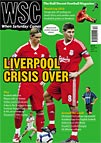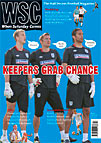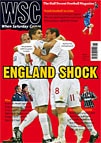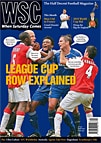 Dear WSC
Dear WSC
I read with interest Paul Joyce’s article concerning the rebranding of SSV Markranstadt as RB Leipzig in WSC 273. Only this summer it was rumoured that my club Southampton would be saved from extinction by becoming co-opted into the Red Bull sporting portfolio. While the team colours, fitting snugly with the brand, would not need to change the adding of the Red Bull moniker seemed a step too far. Surely something would be lost in fusing a global brand, with all its focus-grouped values and marketing spin, to a football club; an act of historic vandalism similar to replacing stained glass windows in a church with double glazing while nailing a satellite dish to the spire. The internet debate suggested, however, that many Saints supporters were happy to trade naming rights in exchange for the club’s survival. The same supporters had several years previously reacted angrily against a corporate branding of St Mary’s Stadium as simply the “Friends Provident Stadium” with the ensuing negative publicity resulting in a U-turn with the addition of St Mary’s to the title. Corporate patronage is not as new as we would like to imagine. The P in PSV Eindhoven stands for Philips, as in the Dutch electrical giants, with the club’s home games at the Philips Stadion. Indeed, many clubs have benefited from long-term relationships with business which may be far preferable to other ownership and financing options; a quick glance around the leagues reveals several fates far worse than “Red Bull Saints”. Football may be just a game to some but following our team is about being part of a community, feeling a connection with the friends and strangers stood next to us at the ground. It is a thread linking us to people looking out for the score on a TV screen or in a newspaper on the other side of the world. Brands by their nature seek to harness and transform these feelings to translate them into profit, in the process sullying the very spirit of our club. Barcelona’s motto is “more than a club”. Every clubs motto should be “more than a brand”.
Neil Cotton, Southampton
Read more…
 Paul Joyce studies how the Berlin Wall divided the city arbitrarily and changed the lives of clubs, players and fans
Paul Joyce studies how the Berlin Wall divided the city arbitrarily and changed the lives of clubs, players and fans


